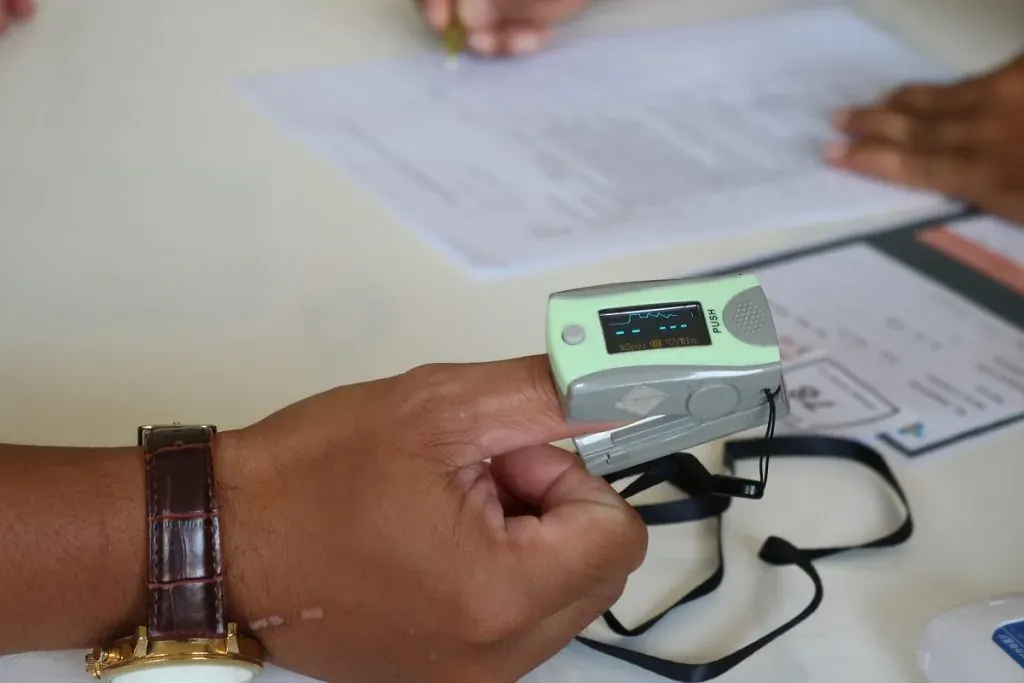Ever wonder about the purpose of routine medical checks or why regular health screening is recommended? Whether it’s for school, work requirements, or simply prioritizing your personal well-being, understanding your current health status is crucial. A comprehensive health screening, often referred to as a full body checkup, provides a valuable snapshot of what’s happening inside your body.
The primary goal of this type of health screening is preventative. It aims to examine your current health, detect potential issues early, and get a sense of your body’s internal workings before problems become serious. Many significant heart, lung, and kidney conditions, for instance, can show early warning signs through simple blood tests included in a routine health screening.
What Does a Health Screening Package Typically Include?
Depending on the specific health screening package you choose, tests often cover:
- Blood Pressure measurement
- Kidney Function screening
- Liver Function screening
- Diabetes screening (Blood Sugar/Glucose levels)
- Thyroid Function tests
- Cholesterol level checks
- Basic Cancer screenings (age and gender-dependent)
The core purpose is to check for diseases or underlying health conditions in advance. These screenings can identify conditions like hypertension (high blood pressure), high cholesterol, or prediabetes (where blood sugar is elevated but not yet diabetic level). Importantly, these conditions often have no noticeable symptoms in their early stages. Regular health screening is the only reliable way to become aware of them before they potentially develop into more severe illnesses. It’s particularly recommended to check your blood pressure as often as possible.
Why Health Screening Catches Issues Before Symptoms Appear
It’s never advisable to ignore health issues, no matter how small they seem. Neglecting potential problems won’t make them disappear; often, subtle signs indicate an underlying risk. Many people don’t initially connect common complaints to potential health problems detected by health screening.
For example, persistent weight gain, chronic lack of energy, depression, or anxiety can sometimes result from the thyroid gland malfunctioning (producing too much or too little hormone). Without a proper health screening including a thyroid function test, a person might endure significant stress, unaware that their physical or mental health struggles stem from a treatable hormonal imbalance.
Risk Factors That Indicate a Need for Regular Health Screening
Certain factors increase your likelihood of developing specific diseases. If you have one or more risk factors, consistent health screening becomes even more important. Key risk factors include (but are not limited to):
- Age: Risk for many conditions increases with age.
- Family History: A family background of certain diseases (e.g., heart disease, diabetes, specific cancers).
- Obesity: Carrying excess body weight.
- Physical Inactivity: Lack of regular exercise.
- Smoking: Tobacco use.
- Unhealthy Diet & Poor Nutrition: High intake of processed foods, sugars, unhealthy fats.
- Alcohol Consumption: Frequent or binge drinking.
- Sexual Activity: Increases risk for STDs.
Age-Specific Health Screening Recommendations
While individual needs vary based on risk factors, here’s a general guide to recommended health screening frequency and focus areas by age:
Core Health Screening Tests (Relevant for Most Adults)
These tests form the foundation of a good health screening program:
- Blood Pressure Check
- Cholesterol Panel (Lipid Profile)
- Diabetes & Prediabetes Screening (e.g., HbA1c, Fasting Glucose)
- Thyroid Function Test (TSH)
- Liver Function Test (LFT)
- Kidney Function Test (Creatinine, eGFR)
- Sexually Transmitted Disease (STD) Screening (based on risk/activity)
- Hepatitis B & C Screening
In Your 20s
- Frequency: Aim for a comprehensive health screening at least twice during this decade, even if you feel healthy.
- Focus: Establishing baseline health metrics. Include all core tests mentioned above. Discuss lifestyle habits and any family history concerns with your doctor.
In Your 30s & 40s
- Frequency: Increase frequency, aiming for a health screening approximately every 2-3 years, or at least three times during your 30s.
- Focus: Continue with core tests. Add gender-specific cancer screenings:
- For Women: Begin regular Breast Cancer screening discussions/mammograms (based on guidelines/risk) and continue Cervical Cancer screening (Pap smear/HPV testing).
- For Men: Discuss Prostate Cancer Screening (PSA test) based on risk factors and doctor’s advice.
In Your 50s
- Frequency: Health screening should become more regular, potentially every 1-2 years. Lifestyle choices significantly impact risk at this age.
- Focus: Maintain core tests and gender-specific cancer screenings (Breast, Cervical, Prostate). Colorectal cancer screening is typically recommended starting around age 45-50. Continue Hepatitis C screening if risk factors exist.
60 & Older
- Frequency: Annual health screening is generally recommended from age 65 onwards. If managing existing conditions (like diabetes, hypertension, high cholesterol), specific tests may be needed much more frequently (monthly or even weekly) as advised by your doctor.
- Focus: Comprehensive checks including all relevant core tests and age-appropriate cancer screenings (Breast, Cervical, Prostate, Colorectal). Discuss bone density screening (especially for women) and review all medications.
Take Charge of Regular Health Screening
Don’t wait for symptoms to dictate your health journey. Proactive health screening is a powerful investment in your long-term well-being. Understanding your body’s status allows for early intervention, informed lifestyle choices, and peace of mind.
Ready to take control? Explore our full body screening packages tailored to your needs




